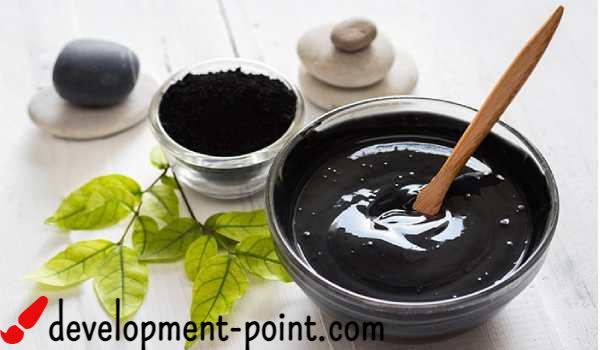How to make a black charcoal mask for the face: and its most important benefits

Black charcoal mask
Activated charcoal is widely used in the cosmetic world. Where activated charcoal (or what is known as activated carbon) absorbs chemicals and toxins. Which made cosmetic companies tend to add it in many products such as facial cleansers, toothpaste, shampoos, soaps, exfoliants, and face masks. This is due to its ability to get rid of bacteria and impurities from the skin. Whether you are seeking to moisturize your skin or reduce the appearance of acne, you should use a black charcoal mask after learning about its benefits and methods of preparation.
Benefits of a charcoal face mask
Among the benefits of the black charcoal mask are the following:
1. Remove impurities from the skin
Due to the ability of active black charcoal to absorb toxins from the body. A number of skin care experts believe that the charcoal mask has the ability to remove impurities from the skin such as chemicals, dirt, oils, and other fine particles from the surface of the skin.
2. Skin lightening and exfoliation
And because the charcoal mask works to remove impurities and get rid of dead skin cells thanks to its coarse texture, you will notice that your skin has become brighter after using it.
3. Reducing the appearance of acne
Acne is caused by the accumulation of dead skin cells, oils, and bacteria inside the pores of the skin. However, the antibacterial properties of activated black charcoal make it effective in helping to reduce the appearance of acne and improve the complexion in general.
4. Treat insect bites
An insect bite can cause skin swelling and itching. However, activated charcoal can help treat it by neutralizing toxins.
Black charcoal mask for oily skin
Charcoal mask for oily skin depends on mixing clay with activated charcoal in order to absorb excess oil. In addition, the use of probiotics and apple cider vinegar helps reduce the appearance of acne.
the components:
- 1 tablespoon of clay (such as Moroccan clay).
- 1 tablespoon of activated charcoal.
- 1 probiotic capsule.
- 2 tablespoons of apple cider vinegar.
- 1 drop of acne essential oil.
How to prepare:
- Mix activated charcoal, clay, and probiotic powder together in a small bowl.
- Add some water to get a creamy paste that can be used easily.
- Add the essential oil, then stir well.
- The dough is placed and spread on the face with a brush or clean fingers, then left for about 15 minutes.
- Finally, rinse with cold water and apply a moisturizing cream suitable for the nature of your skin.
Black charcoal and honey mask
Where active black charcoal works with honey to reduce inflammation and redness of the skin.
the components:
- 1-2 tablespoons of honey.
- 1 teaspoon of matcha powder (powder for a type of green tea).
- 1-2 charcoal capsules.
How to prepare:
- Mix honey with activated charcoal and matcha powder.
- The creamy paste is applied to the face.
- Leave on the face for about 15 minutes.
- Rinse with cold water and apply a moisturizing cream suitable for the nature of your skin.
Charcoal and yogurt mask
The benefit of using yogurt in face masks is due to the ability of the lactic acid present in it to dissolve layers of dead skin cells. Which helps activated charcoal to get rid of oils and dirt that clog pores.
the components:
- 2 tablespoons of full fat yogurt.
- 1-2 capsules of activated charcoal.
- 1-2 teaspoons of honey (optional).
How to prepare:
- Mix the yogurt, activated charcoal, and honey together until you get a creamy paste.
- Apply to the face and neck with a brush or with clean fingers.
- Leave the mask for 20 minutes, then rinse the face with warm water.
Cautions when using
The benefits of charcoal mask are still under study, and only a limited number of scientific studies are available. Excessive use of charcoal mask can also cause skin allergies, dryness or inflammation of the skin. So it is better to use it moderately. And try it when using it for the first time on a small patch of skin, in order to make sure that the skin does not suffer from any kind of inflammation or dehydration.

